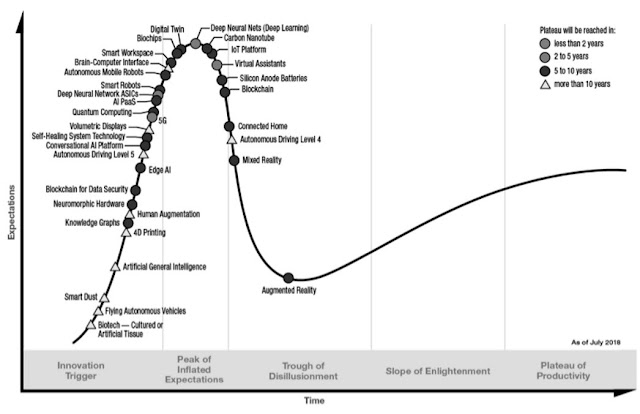|
How can artificial intelligence enhance and transform education?Posted: 03 Apr 2019 02:46 AM PDT By Charles Fadel
Founder and Chairman, Center for Curriculum Redesign Chair of the BIAC/OECD Education Committee As arguably the driving technological force of the first half of this century, artificial intelligence (AI) promises to transform virtually every industry, if not human endeavours at large. Businesses and governments worldwide are pouring enormous sums of money into a wide array of AI technologies, and dozens of AI-focused start-ups have received billions of dollars in funding. It would be naive to think that AI will not have an impact on education, as well. The possibilities for change are indeed profound, though for the moment, they are still over-hyped. It is important to strike the right balance between reality and hype – between true potential and wild extrapolations. Every new technology is first met with high expectations, and invariably sees a precipitous fall after it fails to live up to them. The technology sees slower growth thereafter, as it develops and integrates into our lives. As visualized in the Gartner diagram below, every technology can be said to reside somewhere on the curve at any given time; for example, Deep Learning, which is part of AI, is currently peaking.
It is of course a risky proposition to attempt to predict the future in a field that is evolving so fast. As such, this work will likely be periodically updated to keep up with the latest developments (just as you would expect from any software or app). To use a somewhat oversimplified quote: “There are only two problems in education: what we teach, and how we teach it.”
It is widely expected that AI will have an enormous impact on what we teach, as it will impact many occupations. Take for instance the OECD Programme for the International Assessment of Adult Competencies (PIAAC) survey, which measures adults’ proficiency in key information-processing skills—literacy, numeracy and problem solving in technology-rich environments—and gathers data on how adults use their skills at home and at work. Using information collected by the survey, Stuart Elliot found that AI already matches more than 50% of adult human-proficiency levels, and is closing in on an additional 36%.
Source: Stuart Elliott, “Computers and the Future of Skill Demand” Such progress is bound to continue at an accelerating, pace. IBM’s Open Leaderboard initiative tracks may variables to better understand this progress. According to IBM’s Leaderboard, AI should enter the realm of deeper self-learning by the early 2020s and become capable of assisting, collaborating, coaching and mediating by the early 2030s.
Source: Jim Spohrer, IBM
In light of the above, we make a case in our book for the necessity to focus on a broad, deep and versatile education as a hedge against uncertain futures. This, in turn, requires a reinvigorated focus on the deeper learning goals of a modern education:
All of which are to be developed via:
The ‘How’ How can AI enhance and transform education? First, it is important to distinguish between education technology (EdTech) in general, and artificial intelligence in education (AIED), in particular. A quick summary of the benefits of EdTech is appropriate at this stage, as the taxonomy and ontology of the field is quite murky. The SAMR model, outlined below, showcases how AIED will span all layers of EdTech, with its maximum impact growing as it moves up the stack.
Note that the examples shown in the above figure represent today’s apps, not tomorrow’s, and only serve to help explain the model. Often these apps are collapsed under the term “technology”, and there is much confusion about the potential of technology. This model helps us to delineate the different types of impacts that technology can have, from mere substitution with no functional changes, to the creation of new, previously inconceivable tasks. ‘What is easy to measure is also easy to automate’
Assessments have been the hidden villain behind many education debates, and a powerful force behind enshrining institutional inertia. To repurpose a famous Aristotelian syllogism:
Lack of, or poor, education is at the root of many human problems.
Assessments define the education we get.
Therefore, assessments are the root of many human problems.
It is clear that assessments have an outsize role to play in the change process, and as part of the AI-driven systems of (mostly formative) assessments.
As Andreas Schleicher, Director of the OECD’s Directorate for Education and Skills, has pointed out: “What is easy to measure is also easy to automate”. The onus is therefore on the assessment world to readjust its focus and drive change.
Read the latest book from the Center for Curriculum Redesign: Artificial Intelligence in Education: Promises and Implications for Teaching and Learning, available here. |
||||||||||||||||||||||||||||||||||||||||||||||||||||||||||||||||



0 Comments